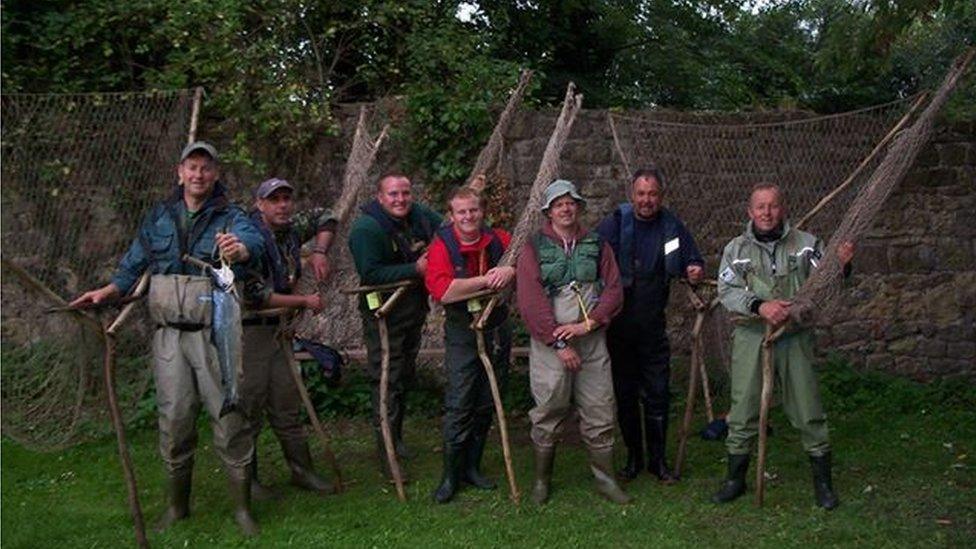Plastic pollution in Severn estuary a 'crying shame'
- Published
Are these the last fishermen of their kind in Wales?
Plastic pollution is regularly washing into the Severn estuary, according to a man who has fished its waters over four decades.
Martin Morgan is the fourth generation of his family to fish using lave nets, a tradition going back 400 years.
It involves standing waist deep in water, trying to haul in fish using homemade nets on giant willow frames.
"It's a crying shame what's happening," says the 54-year-old, from Undy, Monmouthshire.
"The environment is being destroyed by the way we live."
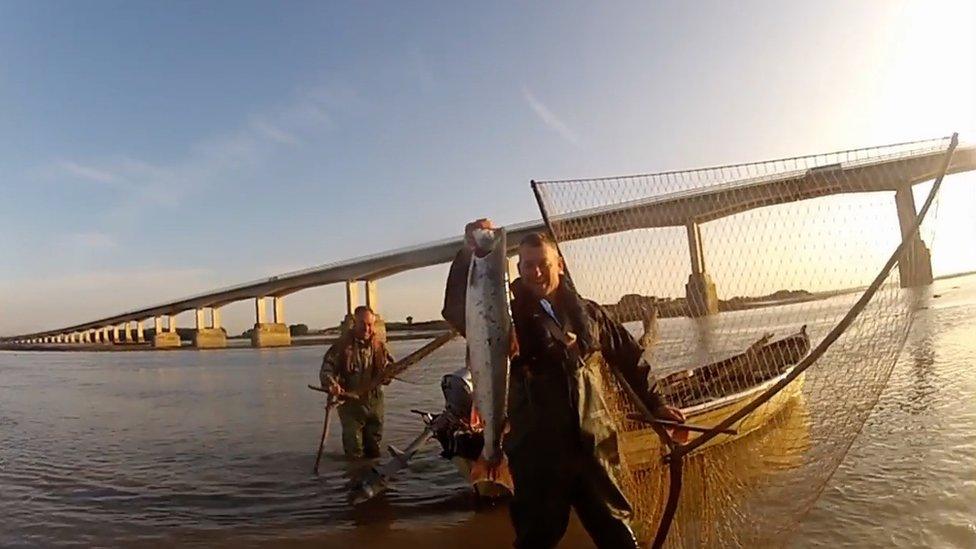
Motorists using the two Severn bridges can see the men fishing in the middle of the estuary
But he says he has also seen a big reduction in discharges into the water from factories once based nearby.
"Plastic is an eyesore but there are improvements because of the demise of industry," says Mr Morgan, adding that he cannot remember seeing plastic in the river when he was boy.
Mr Morgan, secretary of Black Rock Lave Net Fishermen, based at Portskewett, says they have found all types of items discarded in the water or washed up on the river banks, including packaging, hygiene products and even a car.
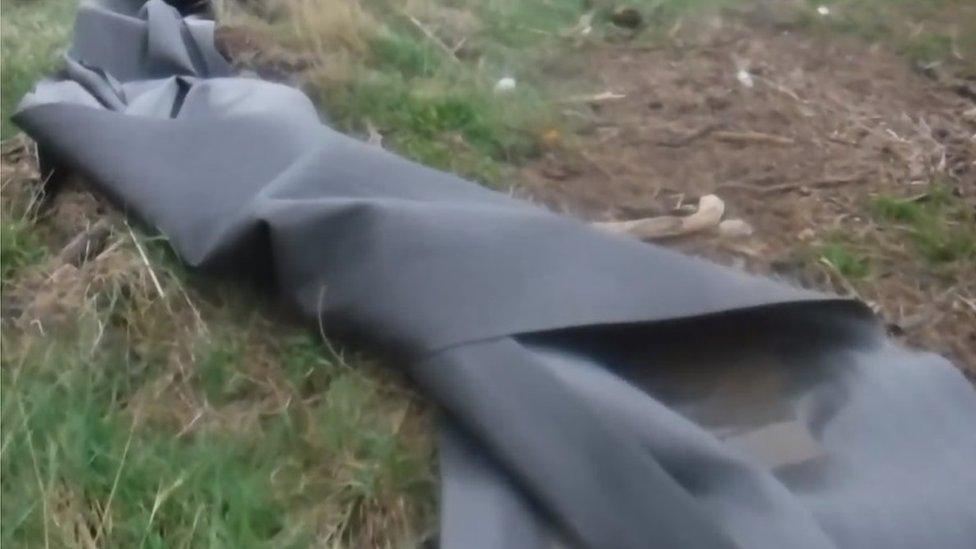
This huge piece of plastic sheeting was washed up on one tide
The group of eight fisherman start their three month salmon fishing season on Monday, fishing every other week on spring tides.
In 2017, there were concerns their traditional way of fishing was threatened by a catch and release programme to help preserve salmon stocks.
But they were allowed to continue and their salmon quota is fixed to a maximum of 15.
Mr Morgan says their success rate is limited by the weather conditions and a two hour window to fish on a changing tide.
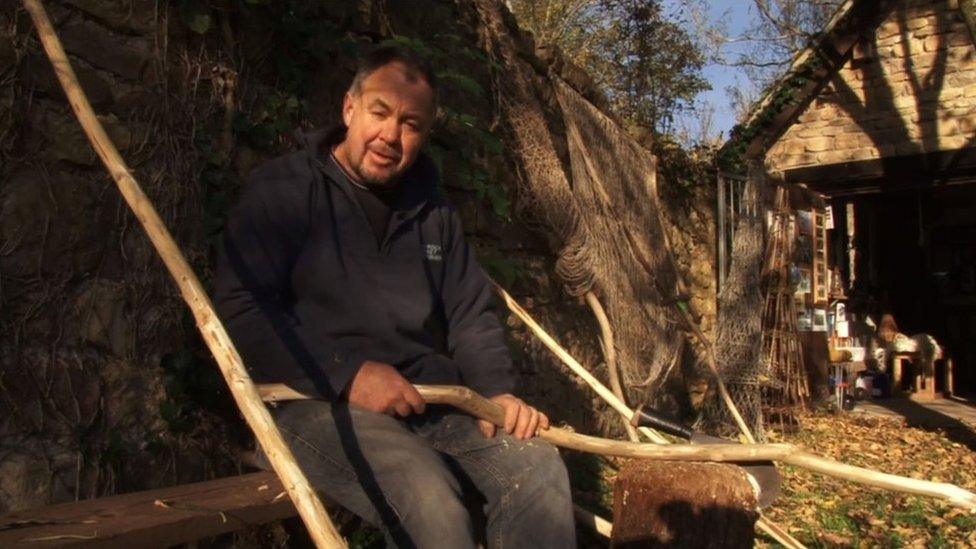
Martin Morgan works on a frame for a new fishing net
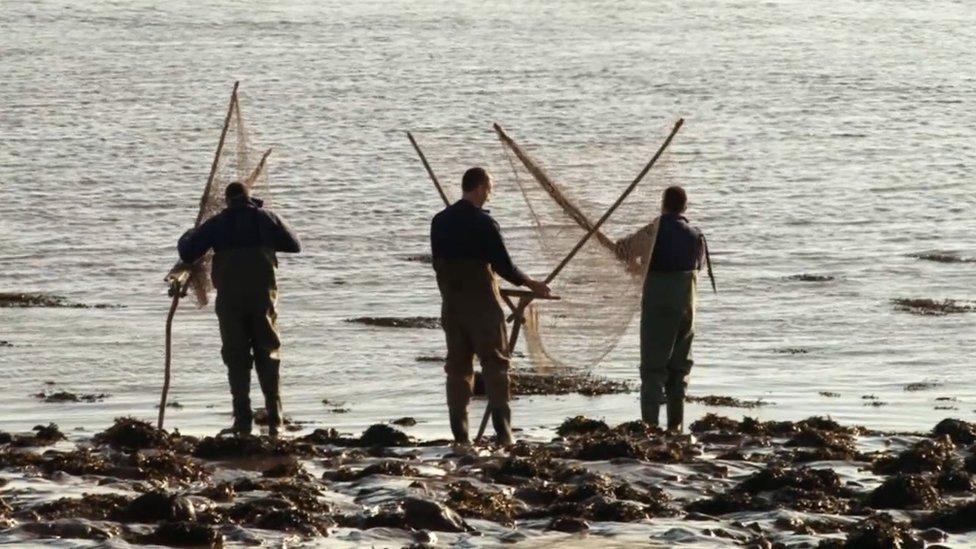
Tradition dictates that each fish caught is shared with every other fisherman fishing that day
They have uncovered some surprising finds in the receding waters, including 14th Century wooden fishing baskets, musket balls and cannon balls.
Mr Morgan says the group did not receive confirmation that their licences would be renewed until last week, causing them some concern as the season drew closer.
And he hopes lave net fishing will continue for years to come. "It's in my blood," he added.
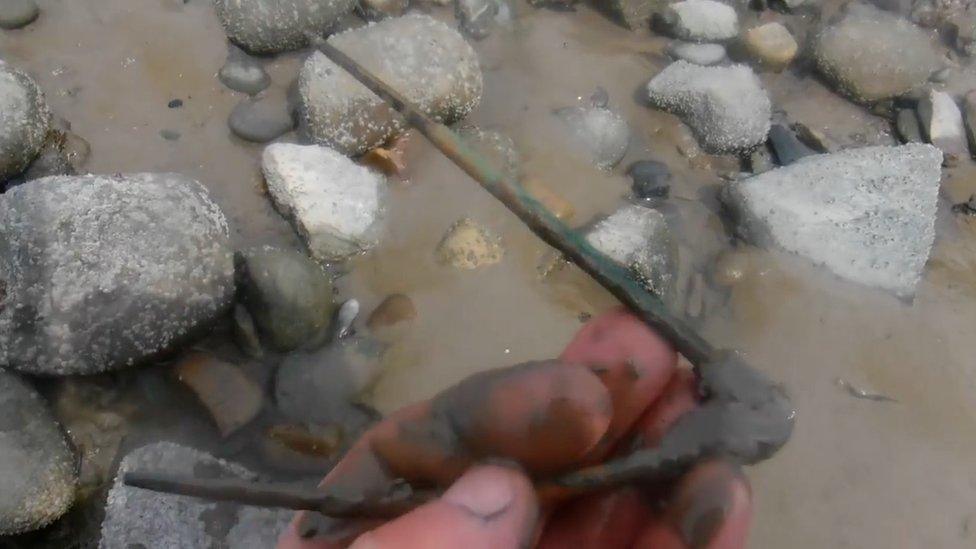
Old ship's compass found in the mud
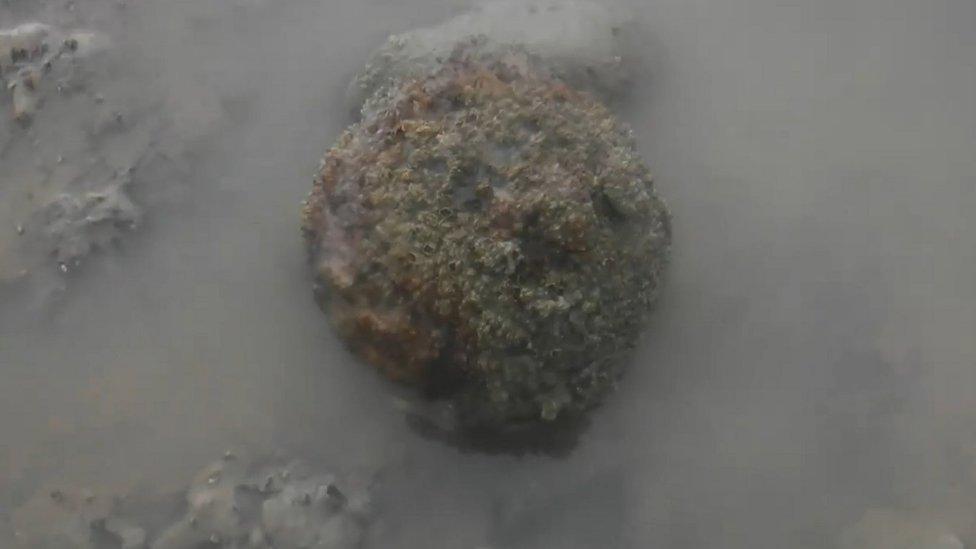
Canon balls are among the finds unearthed in the Bristol Channel
- Published20 May 2019
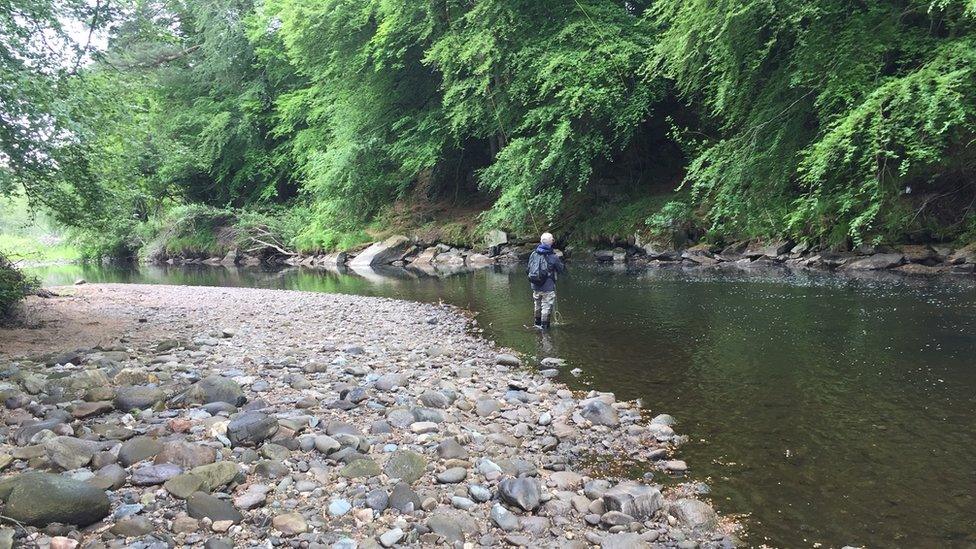
- Published19 May 2019
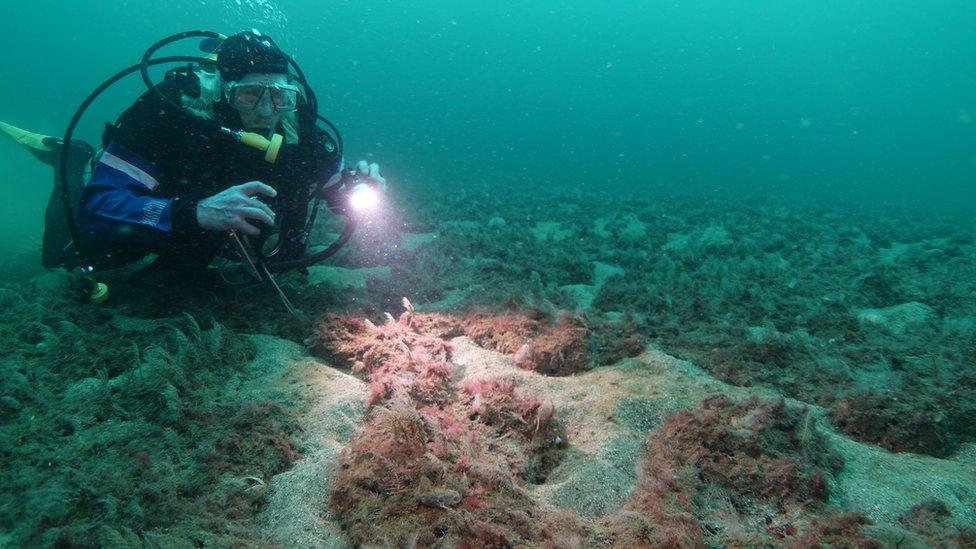
- Published2 May 2019
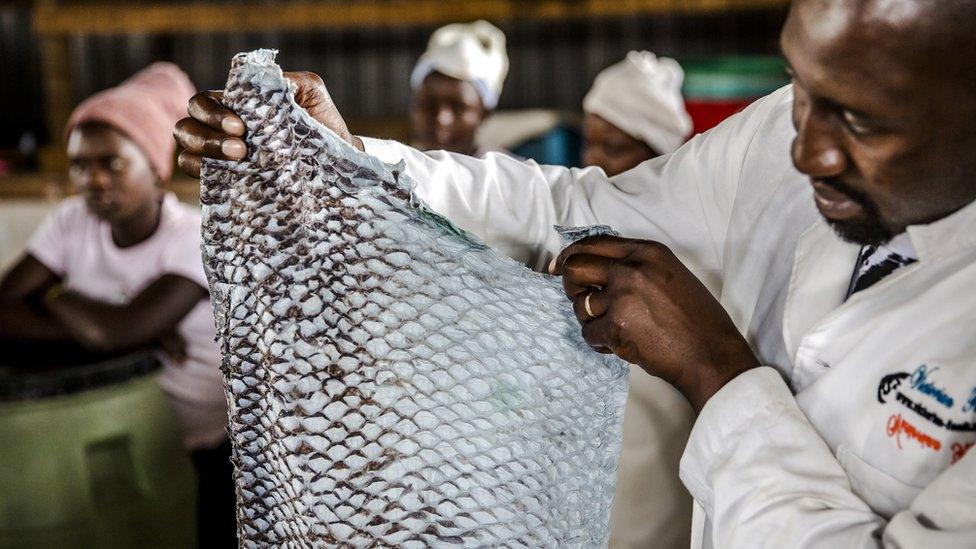
- Published2 January 2019
